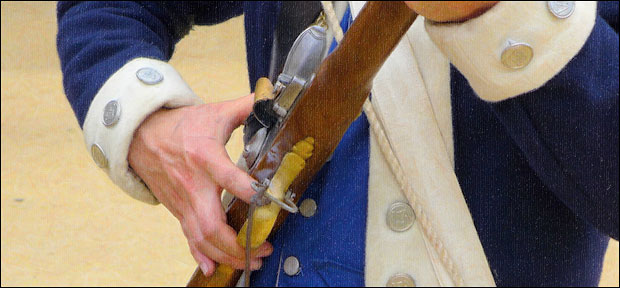 Photo: Lee Wright
Photo: Lee WrightA Montana lawmaker is proposing amendments to the Constitution to nullify the effects of laws in the works to outlaw firearms.
Rep. Jerry O’Neil, a Republican from Columbia Falls, has vowed to work with the Montana state legislature to adopt amendments protecting the Second Amendment and national sovereignty.
O’Neill is concerned about gun laws – including possible confiscation of all semi-automatic firearms in the country – currently being drafted by California Democrat Sen. Dianne Feinstein. If Feinstein’s draconian assault on the Second Amendment is successful, O’Neill warns, gun manufacturers in the Flathead Valley region of Montana will be at risk.
The Congressman believes shutting down thriving firearms manufacturers will violate the Commerce Clause.
He wants to replace the word “among” with “between” in Article 1, Section 8 of the Constitution. If adopted, the passage will read: “Congress shall have power … to regulate commerce with foreign nations, and interstate commerce between the several states, and with the Indian tribes.”
“I believe that is the way our founding fathers intended
it to be,” he said. “This would put some sideboards on the interstate
commerce clause so there is a limit to it.”
Moreover, O’Neill would amend Article 2, Section 2. He
would insert the phrase “subject to the Constitution” so the section
will read: “The president … shall have the power, by and with the advice
and consent of the Senate, to make treaties, subject to this
Constitution, provided two-thirds of the Senators present concur.”
“I’m scared that the Small Arms Treaty that the United
Nations is talking about would override the Second Amendment to the U.S.
Constitution, and I am sure it would infringe on our rights to keep and
bear arms,” he said.
While Infowars.com understands Mr. O’Neill’s desire to
prevent attacks on the Constitution, we are skeptical of any effort to
modify the document. Instead of changing the Constitution, we need to
work toward making sure the document is exercised in absolutist fashion.
Reading the Second Amendment and the voluminous writings
of the founders, it should be obvious that the right to own firearms
was intended to prevent weapon confiscation.
On September 1, 1774, the Royal Governor of
Massachusetts, General Thomas Gage, dispatched Redcoats to seize
hundreds of barrels of powder from the Charlestown powder house. The
provocative event became known as the “Powder Alarm.”
“By the end of the day, 20,000 militiamen had mobilized
and started marching towards Boston. In Connecticut and Western
Massachusetts, rumors quickly spread that the Powder Alarm had actually
involved fighting in the streets of Boston. More accurate reports
reached the militia companies before that militia reached Boston, and so
the war did not begin in September. The message, though, was
unmistakable: If the British used violence to seize arms or powder, the
Americans would treat that violent seizure as an act of war, and would
fight. And that is exactly what happened several months later, on April
19, 1775,” writes constitutional law professor David B. Kopel.
Unfortunately, millions of Americans today do not
consider seizure of their weapons an act of treason demanding a reaction
similar to that of their forefathers. Thanks to decades of unrelenting
propaganda and public education, many of Americans consider firearms
anathema and have no problem violating the letter and spirit on the
Constitution.
Feinstein’s attack is also aimed at America’s gun
culture that was forged at the founding of the nation. “I hope and trust
that in the next session of Congress there will be sustained and
thoughtful debate about America’s gun culture and our responsibility to
prevent more loss of life,” Feinstein said in the wake of the Sandy Hook murders.
Via: Prisonplanet
Via: Prisonplanet